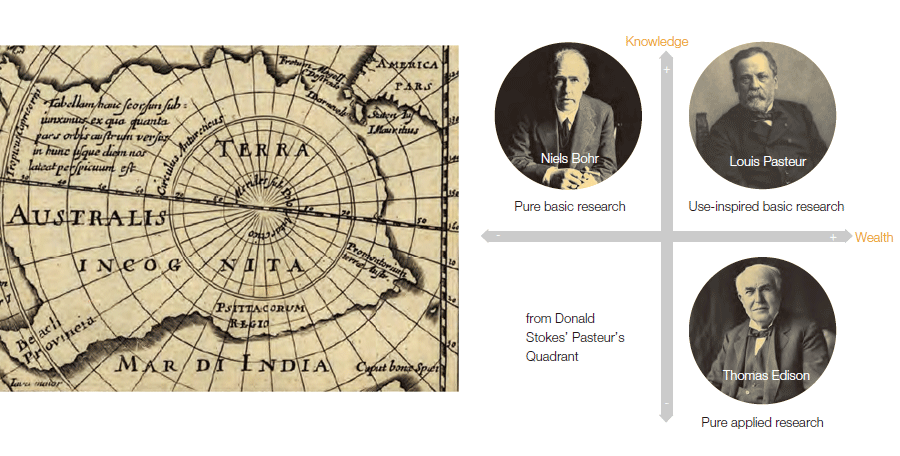주메뉴
- About IBS 연구원소개
-
Research Centers
연구단소개
- Research Outcomes
- Mathematics
- Physics
- Center for Underground Physics
- Center for Theoretical Physics of the Universe (Particle Theory and Cosmology Group)
- Center for Theoretical Physics of the Universe (Cosmology, Gravity and Astroparticle Physics Group)
- Dark Matter Axion Group
- Center for Artificial Low Dimensional Electronic Systems
- Center for Theoretical Physics of Complex Systems
- Center for Quantum Nanoscience
- Center for Exotic Nuclear Studies
- Center for Van der Waals Quantum Solids
- Center for Relativistic Laser Science
- Chemistry
- Life Sciences
- Earth Science
- Interdisciplinary
- Center for Neuroscience Imaging Research (Neuro Technology Group)
- Center for Neuroscience Imaging Research (Cognitive and Computational Neuroscience Group)
- Center for Algorithmic and Robotized Synthesis
- Center for Genome Engineering
- Center for Nanomedicine
- Center for Biomolecular and Cellular Structure
- Center for 2D Quantum Heterostructures
- Center for Quantum Conversion Research
- Institutes
- Korea Virus Research Institute
- News Center 뉴스 센터
- Career 인재초빙
- Living in Korea IBS School-UST
- IBS School 윤리경영


주메뉴
- About IBS
-
Research Centers
- Research Outcomes
- Mathematics
- Physics
- Center for Underground Physics
- Center for Theoretical Physics of the Universe (Particle Theory and Cosmology Group)
- Center for Theoretical Physics of the Universe (Cosmology, Gravity and Astroparticle Physics Group)
- Dark Matter Axion Group
- Center for Artificial Low Dimensional Electronic Systems
- Center for Theoretical Physics of Complex Systems
- Center for Quantum Nanoscience
- Center for Exotic Nuclear Studies
- Center for Van der Waals Quantum Solids
- Center for Relativistic Laser Science
- Chemistry
- Life Sciences
- Earth Science
- Interdisciplinary
- Center for Neuroscience Imaging Research (Neuro Technology Group)
- Center for Neuroscience Imaging Research (Cognitive and Computational Neuroscience Group)
- Center for Algorithmic and Robotized Synthesis
- Center for Genome Engineering
- Center for Nanomedicine
- Center for Biomolecular and Cellular Structure
- Center for 2D Quantum Heterostructures
- Center for Quantum Conversion Research
- Institutes
- Korea Virus Research Institute
- News Center
- Career
- Living in Korea
- IBS School
News Center
| Title | IBS, a beacon of hope for leading the world in basic science research | ||||
|---|---|---|---|---|---|
| Name | Department of Communications | Registration Date | 2014-04-01 | Hits | 2601 |
| att. |
 Doh-Yeon-Kim.jpg
Doh-Yeon-Kim.jpg
|
||||
|
IBS, a beacon of hope for leading the world in basic science researchDoh-Yeon Kim the former head of the National Science & Technology Commission While contemplating the role of the Institute for Basic Science (IBS), which was established only three short years ago, a common saying came to mind: “What is learned in the cradle is carried to the grave.” When looking at the past half-century,government policy in regard to science and technology was primarily focused on absorbing advanced technology of western world and transferring it to the private sector to boost the industry. It has been barely 20 years since the government began to allocate funds to universities and laboratories researching basic science. In spite of this relatively brief time,the value and achievements created by Korean researchers could be seen as nothing short of a miracle. The third type of research must possess characteristics of both Bohr and Edison. Through their efforts focused in acquisition of knowledge about nature, their research could be used to gain profits in real world. For an example of one such scientist, we can think of Louis Pasteur who discovered the existence of the Rabies pathogen, going on to develop vaccine forit. In doing so he not only pioneered a new field of modern science but also saved many lives and contributed real world and society.
Collaboration is the hallmark of modern science,and begins with dialog. That’s why the role of hub for communication is required to IBS. For this reason, the effort put into research becomes extremely important. Academic study at it’s core, is exploration. It is important for the researcher to carefully explore the uncharted land and leave a map for future researchers. In science, the map is the research paper. Conversely, unfaithfully written papers create false maps leading future researchers to a wrong or even bad direction. Certainly, the requirement for researchers to publish a good research paper is a heavy burden. But to obtain great scientific accomplishment, researcher should value quality over quantity. To achieve professional standing,one must consistently do so, therefore, the most essential virtues for the researcher is honesty and patience. |
|||||
| Next | |
|---|---|
| before |
- Content Manager
- Public Relations Team : Yim Ji Yeob 042-878-8173
- Last Update 2023-11-28 14:20












